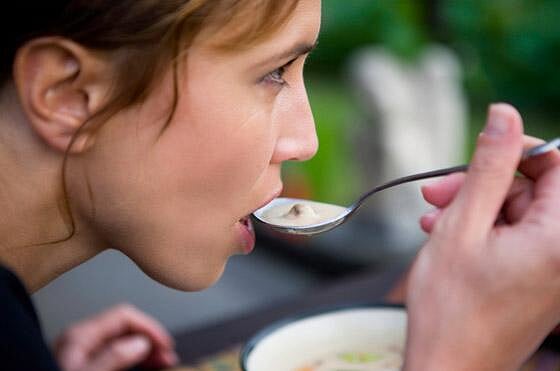|
For someone habituated to gulping down three bananas, a bowl of cornflakes with nuts, some toast with butter and some freshly brewed coffee, cutting off butter or nuts from your diet schedule affects your mind greatly. You feel dissatisfied with the intake routine, your mind prompts you constantly to eat more and you find yourself with lesser energy to do your chores. Most individuals who cut down on their calorie intake ignore these cues and pacify themselves that the body needs sometime to adapt itself to the latest dietary patterns. Logically this seems to fit the bill but practically we are only partly right. Weight loss clinics and techniques have revolutionized the world bringing in people across borders and different parts of the world to places that flourish in achieving weight loss. None can forget the Egyptian woman Eman Ahmed Abd El Aty who flew down to Mumbai for a bariatric surgery and lost more than 300 kg of her 500 kg but sadly died due to other health complications. Crash diets are popularized in the Internet where people give positive feedbacks soon after slimming without knowing the long-term effects. Such is the weight loss craze of this modern world that seeks to lose weight by hook or by crook.
Weight Loss is Not the End but the Beginning For those who cringe with pain and disdain after looking at the diet chart for weight loss, the positive results that follow this excruciating weight loss regimen brings upon sheer joy and confidence. This does not stay long and you find yourself hungrier than before after the weight loss journey but the one good point here is that you are not battling this alone and there are thousand others who feel similarly. A study shows that decreasing calorie intake is likely to spur your hunger hormone ghrelin and boost your appetite. Doesn’t this remind us of our early ancestors who sailed through frequent periods of famine and overfed later to compensate for all the lost energy intake? This ancestral effect might deviate long-term weight loss efforts which has been proved by a long-term research. The study involved 35 morbidly obese patients who underwent a 2-year strict weight loss program. There were 22 women and 13 men who weighed around 125 kilograms on an average and marked as ‘highly obese’ by their physician after which they enrolled themselves to this weight-loss study. The first three weeks of the program involved inpatient training where the participants were put on a rigorous nutritional education, psychological counselling and daily exercise schedules. Four more such 3-week sessions were organized over the entire tenure of the program. All the participants consumed 500 calories less every day than what they were otherwise consuming to maintain their current weight. The calorie-restricted diet was composed of 50% carbs, 30% fat and 20% protein. Participants lost around 5 kilograms within the first three weeks of commemorating the program and about 11 kilograms by the end of the two-year study. One general notion that united all participants included increased hunger sensation after the weight loss effects. That’s mainly because of increased ghrelin (hunger hormone) levels that increased post the weight loss efforts and the decreased energy needs to perform everyday functions such as eating, walking, breathing and even sleeping following a drop in weight measures. A Never-ending Battle The research shows that all fingers point towards regaining lost weight over time making weight loss maintenance a great struggle. Weight loss programs that boast of achieving sharp weight loss in limited time are mostly incapable of maintaining the loss in the long run. Reputed RDNs suggest reducing calorie needs by 200-300 calories per day and exercising regularly to achieve a lower ‘set point’. By adhering to such criteria one can be ensured of long-term weight loss maintenance without much struggle. Dedicate an hour every day to exercise your way to good health. This can include anything that you are passionate about, maybe swimming, tennis, dancing or even kick boxing. To do it right, get in touch with a registered dietitian nutritionist at www.firsteatright.com who can help you achieve weight loss and also ensure that you are equipped to maintain the weight loss in the long run. Comments are closed.
|
AVOID FRAUD. EAT SMART.+91 7846 800 800
AuthorDietitian & Nutritionist Dr. Nafeesa Imteyaz. Archives
July 2024
Categories
All
Dr. Nafeesa's Blog @blogspot |
- Home
- Written Testimonials
- Consult
- Clinics
- Blogs
-
Diet & Nutrition
- Diabetes Reversal
- IVF IUI not needed for PCOS PCOD Infertility
-
Medical Nutrition
>
-
Disease & Conditions
>
- Infertility | PCOS
- Diabetes Mellitus
- Cholesterol
- Hypothyroid
- Kidney Problems
- Hypertension
- Cardiovascular Diseases
- Liver Diseases
- Gastro intestinal disorder
- Cancer
- Metabolic Disorders
- Orthopedic Disorders
- Eating Disorders
- Dietary Recall
- Weight Record Filled By Clients
- Online Payment Transaction Details
- Online Clients Weight Check Form
- Our Program Package Service Charges
- Weight Record 2017 Clients
- Measurements sent by Clients
- Terms & Conditions Of Payment
- Thanks. Your Form is Submitted
- Video Testimonials
- Lifestyle & Wellness
- Lifestyle & Wellness Blog
- Allergy & Intolerance
- Weight Loss / Gain
- Weight Loss / Slimming Blog
-
Disease & Conditions
>
- Life Cycle Nutrition >
- Sports Nutrition >
- Integrity in Nutrition
- Knowledge Centre
© COPYRIGHT 2022. ALL RIGHTS RESERVED. FRST HEALTHCARE PVT LTD.
Dr. Nafeesa Imteyaz of First Eat Right clinic, is the Best Dietitian Nutritionist in Bangalore. Best Dietitian Nutritionist in Pune. Best Dietitian Nutritionist in Hyderabad. Best Dietitian Nutritionist in Chennai. Best Dietitian Nutritionist in Mumbai. Best Dietitian Nutritionist in Delhi. Best Dietitian Nutritionist in Kolkata.


